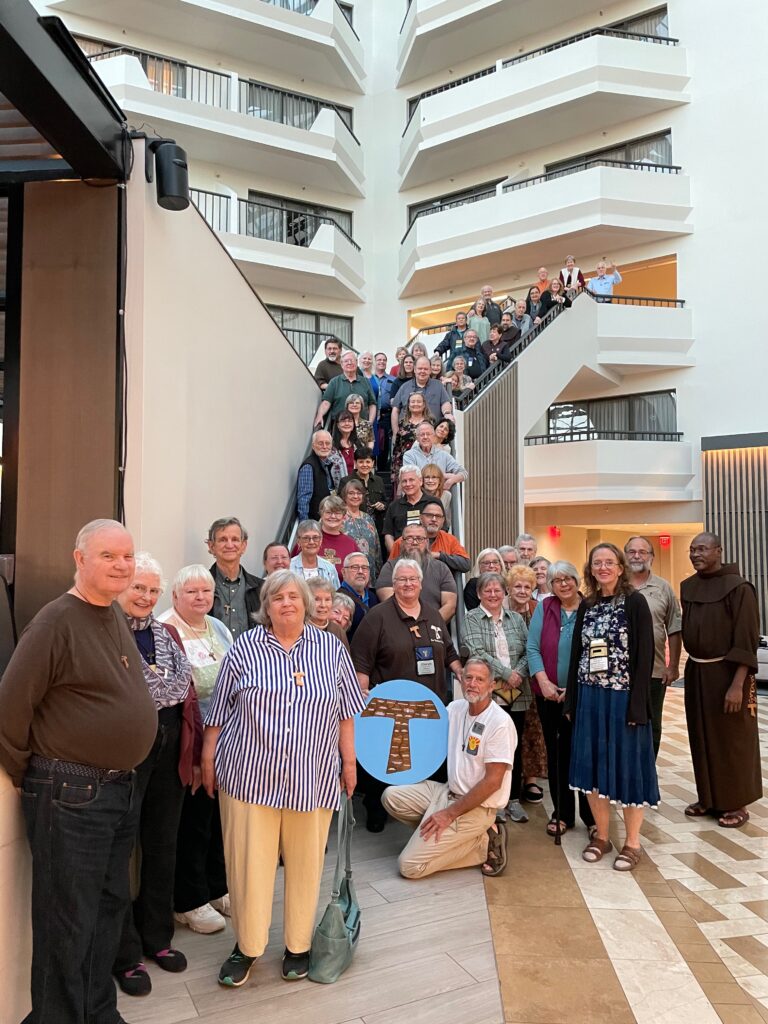
800 years ago, if you were a layperson who followed St. Francis of Assisi and asked to join his order, he likely would not have responded as you expected. If you had a family or a job you were passionate about, he would have counseled you to not leave them but to embrace and live the Gospel in your work and day-to-day life.
If you heeded St. Francis’ advice, and he deemed you a person of strong moral standing and vocation, you may have been invited to join what is today known as the Secular Franciscan Order (OFS). Secular Franciscans do not wear robes or habits or live in friaries; they wear Tau crosses and live by a rule of life.
Article 4 of that rule exhorts them to go “From Gospel to Life and Life to the Gospel.” These devoted lay Catholics have families, work jobs, pursue careers, and live their lives much like most of the people you know.
The one difference: they are part of a worldwide public association of the faithful, which includes lay people and diocesan clergy, bringing St. Francis’ Gospel of love, simplicity, and solidarity with the poor and marginalized to where they live and work. Secular Franciscans look for ways to embrace the Gospel and try to help others do likewise.
“We are our own order,” shares Jane DeRose-Bamman, OFS, Minister of the Secular Franciscan Order, USA. “We are self-governing. But of course, we walk hand in hand with the friars. They help us deepen our understanding of the Franciscan charism and how we can apply it. Most of us learned about the Franciscan order by meeting friars and helping with their ministries.”
“We use the term fraternity to describe the groups on the local, regional, and national levels that make up our order. continues Diane Menditto, National Vice Minister. “But from a broader perspective, we use it in terms of “fraternitas” which describes the camaraderie that we live together as brothers and sisters in Christ and in our following of the Franciscan charism in the one Franciscan family.”
“We’re not just a prayer group,” adds Jane “Our main mission is to go from gospel to life and life to the gospel.”
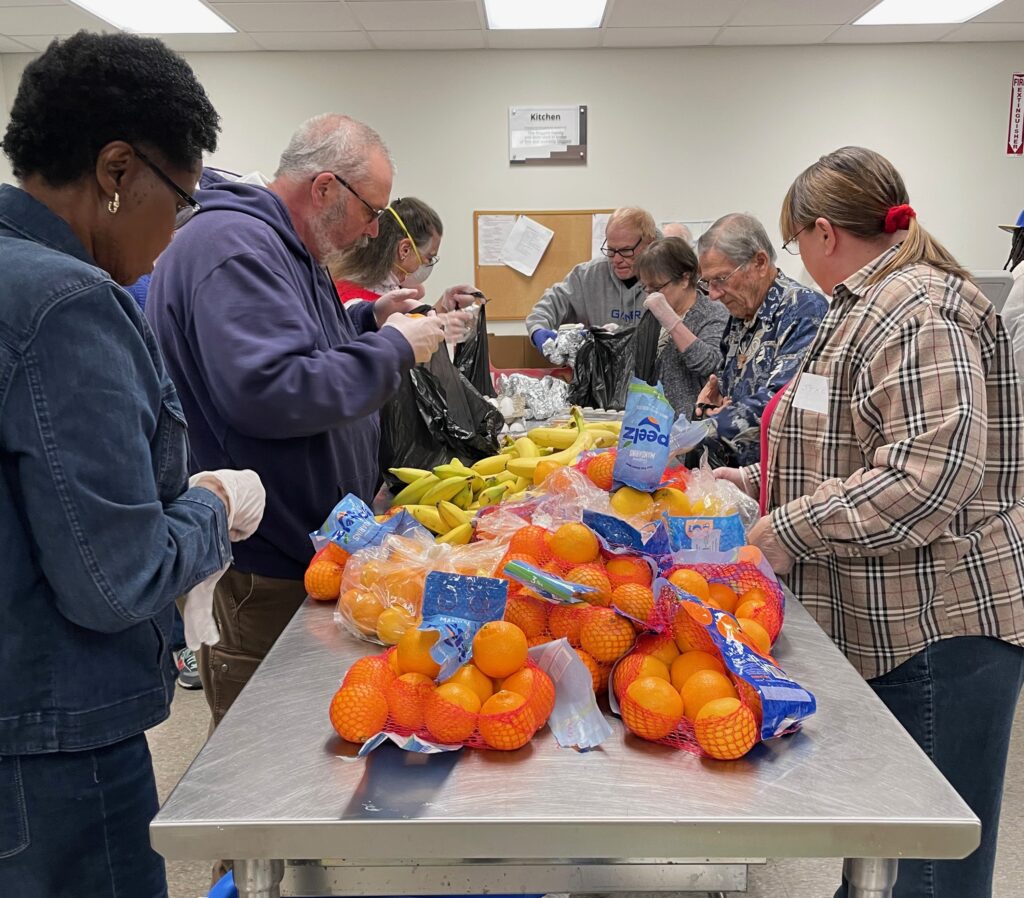
Secular Franciscans live this reality in fraternities across the country and around the world.
“If you went to each individual fraternity we have in the United States, you would find a unique personality,” shares Diane. “You would find a certain kind of discussion. Not every fraternity functions the same way. But what you would find in all those fraternities is that sense of fraternitas. These are people who have made a commitment to live as a family outside of their own family by being a part of the larger Franciscan family.”
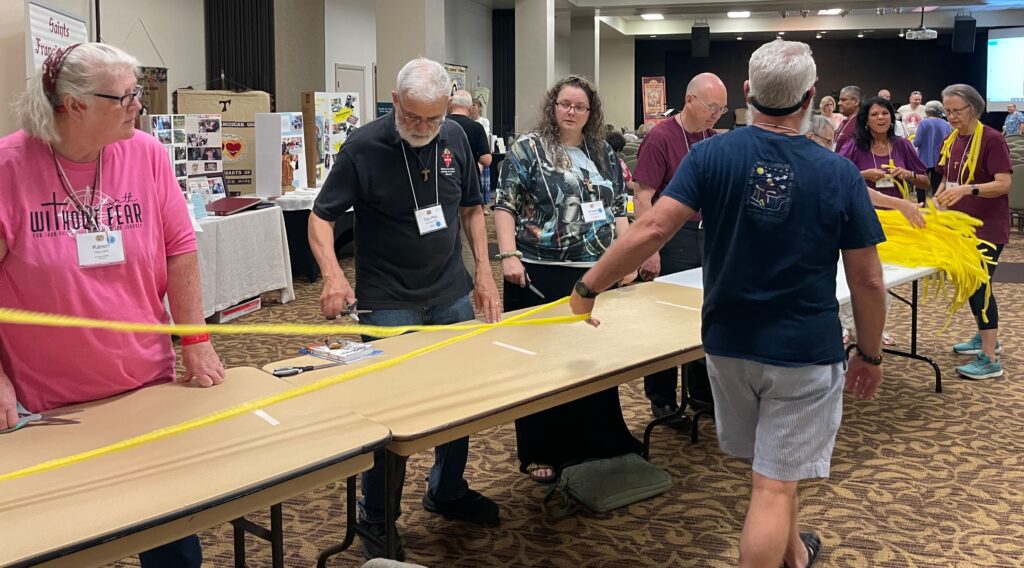
“Each fraternity is encouraged to have an apostolate that can be multiple things, depending on where that fraternity is located,” continues Jane. “Locally, depending on where you’re living, that could be things like helping with immigration issues, adequate housing for seniors and the poor, pro-life and legislative advocacy, working with the humane societies exemplifying our Franciscan love for creation. We also help internationally, by collecting money to build water wells in Africa, help the lepers of the Amazon, or minister to the poor in India and Peru.”
“And we want to work and partner with the friars,” adds Jane. “To deepen our understanding. There are 72 friars that are currently serving as spiritual assistants to our local fraternities. We’re so grateful for them and their time.”
The friars devote their time and guidance to the OFS in the USA and its nearly 10,000 national members with over 500 local fraternities. World-wide the Secular Franciscan Order numbers approximately 200,000 individual members and 60,000 YouFra (Youth and Young Adults) members in 70 constituted national fraternities and 21 emerging national fraternities. And with more fraternities emerging in Europe and Asia, it’s evident that the secular Franciscan way has a strong, practical appeal.
“I think our large membership arises because people are hungry for more spirituality,” says Sharon Winzeler of the OFS Communications Committee. “We do get several people who were in the RCIA Program who are still hungry for more spiritual growth and community. And I think that’s why they come to us.”
The RCIA, Rite of Christian Initiation of Adults, is a process within the Catholic Church that guides individuals who are not Catholic toward becoming full members of the Church through a structured program of learning and spiritual development.
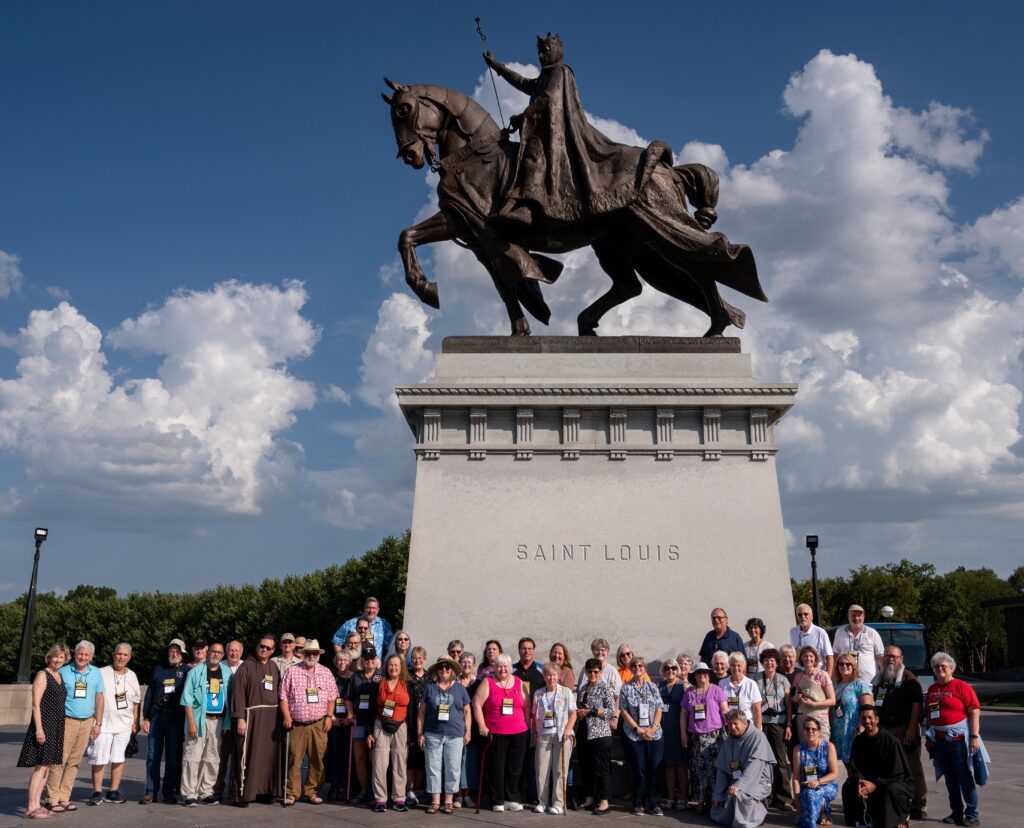
“We have a Franciscan parish in Durham, North Carolina, that has a big Hispanic population,” continues Sharon. “They had a youth group comprised of high school students that went through Confirmation. And when they finished, they said something that really struck me, ‘We want to continue!’ They didn’t want to stop meeting. They wanted to learn more and grow. They wanted the fellowship. They wanted to do service projects. They wanted more formation, which is what we’re all about. I feel like when we bring people in, we let them in on this wonderful spiritual secret.”
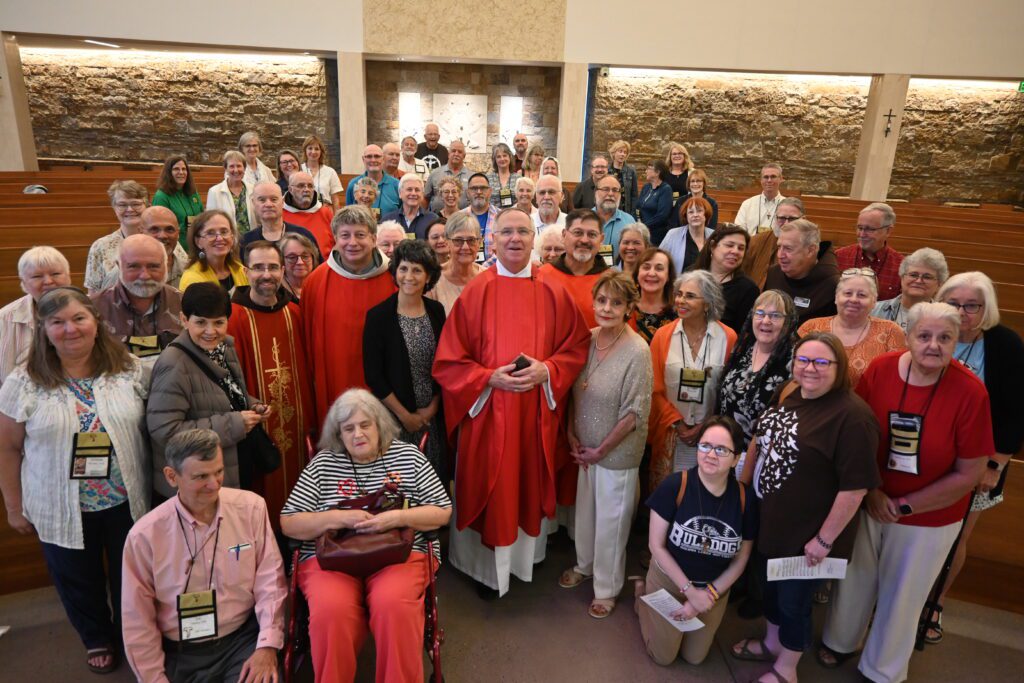
The OFS welcomes all people, regardless of race, ethnicity, gender, disability, or age.
“I see a whole variety,” says Diane. “We’ll get older vocations, but lately, in my fraternity and other places, I’ve noticed younger people in their 30s and 40s who are searching. They call themselves ‘reverts,’ people who have been away from the church or stepped away from religion. One way or another, they have found out about the Franciscans—the Secular Franciscans in particular. As Sharon said, they are hungry for more spirituality.”
Whether one feels lost or lacking, has experienced loss, or simply turned on the news, the reasons for feeling a spiritual hunger are deeply personal.
“More people are finding out about us,” says Jane. “As Diane mentioned we have a nice, solid growth of young people—and families, too. In fact, we’re having a three-day retreat at a Franciscan center in April, and husbands are bringing their wives, wives are bringing their husbands—it’s really cool to see.”
“The OFS is a vital part of the Franciscan charism in the world,” adds Jane. “As partners in building the kingdom of God here on earth, we are all jointly responsible for living the Gospel and bringing it to people that maybe haven’t heard it or just need a boost from that Franciscan joy and peace. And we learn how to do that better by walking with the friars. In doing so, we can help them fulfill their ministries. That partnership is important, and we love them.”
“We often hear the question, ‘What do you do as secular Franciscans?” shares Diane. “It’s not what we do; it’s who we are.”
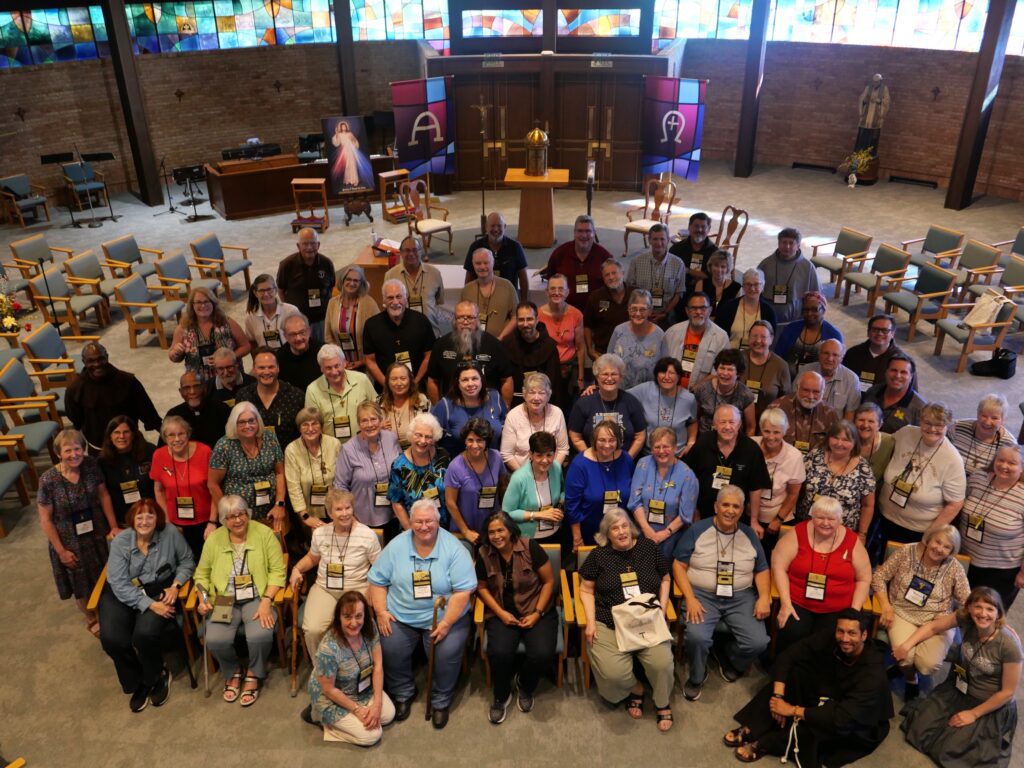
To learn more about the Secular Franciscan Order – USA, visit https://www.secularfranciscansusa.org/
To find a local fraternity near you, visit https://www.secularfranciscansusa.org/map-of-local-fraternities/
